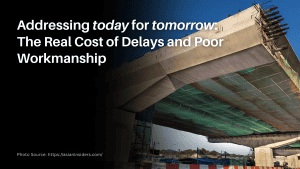The City of Ottawa, Canada’s Capital, is taking significant strides to address the pressing need for affordable housing while leveraging the Federal Housing Accelerator Fund. By adopting a multifaceted approach to tackle this crisis, Ottawa aims to create thousands of new housing units and revitalize its urban landscape. These seven key strategies encompass various aspects of urban development, housing policy, and community engagement.
1. Strategic Transit-Centric Development
To maximize the impact of the available funding, Ottawa is focusing on increasing housing units near major transit stations. This includes altering zoning regulations to facilitate high-density development and potentially reducing parking requirements. Without additional funding, around 19,500 housing units are projected to receive municipal approval by September 1, 2026. However, with funding, this number could increase by up to 4,000 units.
2. Promoting ‘Gentle Intensification’
Ottawa is making zoning changes to encourage property owners to add two extra “dwelling units,” intensifying residential neighborhoods through infill. These changes align with the provincial legislation, aiming to expedite approvals and unlock development potential on 46% of urban residential land in Ottawa. Creating triplexes and row houses complements Ottawa’s “missing middle” housing initiatives.
3. Financial Incentives for Affordable Units
The city is introducing a community improvement plan that provides financial incentives for developers to create affordable housing. This initiative is designed to enhance the business case for constructing low-rent housing units, ultimately increasing the availability of affordable housing options.
4. Conversion of Office Spaces
Ottawa’s downtown area has been grappling with a surplus of vacant office space, even as remote work policies have evolved. The city plans to streamline the conversion of empty workplaces into residences. This approach not only repurposes underutilized buildings but also benefits businesses and events impacted by decreased foot traffic.
5. Strategic Land Disposal
The city is adjusting its land disposal policy to encourage rapid residential development on surplus municipal-owned land. This includes actively disposing of land suitable for housing and proactively rezoning these areas. If the land is not allocated to non-profit housing providers, it will be subject to affordable housing requirements or cash-in-lieu.
6. Reducing Affordable Housing Backlog
Ottawa aims to develop a pipeline to assess and prioritize affordable housing projects that are ready to proceed. This initiative is essential to accelerate the construction of housing units proposed by not-for-profit housing providers, addressing the current lack of funding for these projects. The Housing Accelerator Fund will partially finance shovel-ready projects, increasing the permitted percentage of affordable units by five percent within three years.
7. Streamlined Planning Approvals
One challenge in meeting ambitious housing targets is the time-consuming approval process for site plans and zoning amendments. Recent provincial legislation intended to expedite this process has created bureaucratic hurdles for municipalities, including Ottawa. The city plans to hire additional staff to expedite these processes and utilize part of the federal housing funding for this purpose.
These seven initiatives demonstrate Ottawa’s commitment to improving housing accessibility, affordability, and availability. The federal government will evaluate these strategies as part of Ottawa’s application for the Housing Accelerator Fund. The city also includes tools to help visualize project impacts and address stormwater management. However, it’s important to note that the level of funding awarded to Ottawa may depend on the number of successful applicants.










